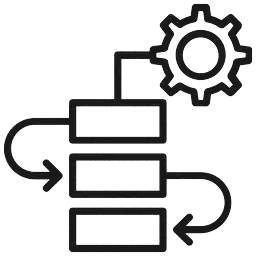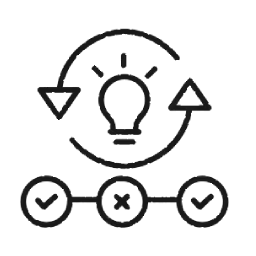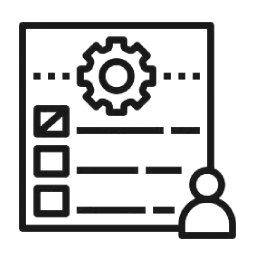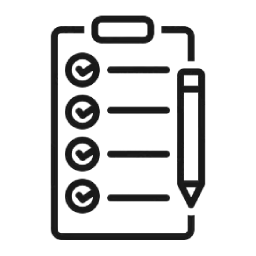Sales Enquiry
- sales@aiintelekt.com
- Powered by Aiintelekt
Conquer every stage of the customer journey with Aiintelkt CRM completely free CRM at its core the customer They’re powerful alone
iCRM software is often used to automate this process, providing a centralized database for storing lead information and enabling sales teams to track lead progress, set reminders, and schedule follow-up tasks. This software also provides detailed analytics and reporting, allowing sales teams to monitor the effectiveness of their outreach efforts and identify areas for improvement.

The iCRM software enables the user to capture leads from various sources such as web forms, landing pages, and social media.

The iCRM software helps in qualifying leads by scoring them based on their fit and behavior, enabling the user to prioritize them for follow-up.
The iCRM software enables the user to nurture leads by providing them with relevant content and personalized experiences, guiding them towards a purchase.

The iCRM software enables the user to segment leads based on various criteria such as demographics, behavior, and interests, enabling targeted marketing.

The iCRM software enables the user to assign leads to sales reps or teams based on predefined criteria such as geography, product interest, or lead score.
The iCRM software tracks the progress of leads through the sales funnel, providing insights into their behavior, engagement, and conversion rates.

The iCRM software integrates with email marketing platforms to enable targeted and personalized email campaigns to leads.

The iCRM software provides comprehensive reporting and analytics capabilities, enabling the user to measure the effectiveness of lead generation and marketing campaigns, identify trends, and optimize performance.
B2B/B2C customer 360 can help you build stronger relationships with your customers, drive revenue growth, and improve operational efficiency B2B/B2C customer 360 is a comprehensive approach to understanding and managing your customers across all touchpoints and interactions. It involves collecting and analyzing customer data from various sources, including sales, marketing, and customer service, to gain a complete view of the customer journey. Here are some potential benefits of implementing a B2B customer 360 management strategy
:
By understanding your customers’ needs and preferences, you can provide more personalized and relevant experiences, which can lead to higher customer satisfaction.

By analyzing customer data and identifying trends, you can proactively address issues and improve customer retention.

The iCRM system enables the user to manage contacts, including customers, leads, and prospects, enabling better customer engagement and relationship building.

By segmenting customers based on their behavior and preferences, you can create targeted marketing campaigns that are more likely to resonate with them.

By centralizing customer data in a single platform, you can streamline your operations and reduce manual tasks.

By providing a seamless and personalized customer experience, you can differentiate your brand and gain a competitive advantage.
Opportunity management is the process of identifying and managing potential sales opportunities or deals with potential customers. It involves tracking and nurturing leads throughout the sales process, from initial contact to closing the deal. The goal of opportunity management is to convert leads into paying customers by managing the sales process effectively and efficiently.
The iCRM system enables the user to track opportunities throughout the sales process, from initial contact to closing the deal.

The iCRM system provides a visual representation of the opportunity pipeline, enabling the user to identify bottlenecks, prioritize opportunities, and optimize the sales process.

The iCRM system enables the user to manage contacts, including customers, leads, and prospects, enabling better customer engagement and relationship building.

The iCRM system helps in sales forecasting by analyzing sales data, identifying trends, and predicting future demand.

The iCRM system automates repetitive sales tasks such as email follow-ups, appointment scheduling, and proposal generation, enabling sales reps to focus on high-value tasks.

The iCRM system enables the user to assign tasks, set deadlines, and track progress, ensuring timely follow-up and closure of opportunities.
The iCRM system integrates with other modules such as CRM, marketing automation, and lead tracking, enabling a unified view of the sales process and customer engagement.

The iCRM system provides comprehensive reporting and analytics capabilities, enabling the user to measure the effectiveness of sales campaigns, identify trends, and optimize performance.
Contact management is the process of managing and organizing a company’s interactions with its contacts. It involves tracking and storing contact information for customers, prospects and other business partners, as well as managing all communications and interactions with these contacts.

A centralized database for storing and organizing contact information, including company name, address, phone number, email, and other relevant data.
The ability to track all interactions with contacts, including emails, phone calls, meetings, and other activities.

The ability to segment contacts based on various criteria, such as industry, company size, or location.

The ability to schedule and track tasks related to each contact, such as follow-up calls, meetings, or sending proposals.

The ability to generate reports and analytics that provide insights into contact engagement, activity levels, and other metrics that can help businesses improve their B2B contact management efforts.
Service Request management system is a iCRM software solution that helps businesses manage customer inquiries, requests, and issues through a centralized system. Some of the key features of a CRM ticket management system include:

Allows customers to create Service Request for their inquiries, issues, and requests. These Service Request are assigned to the appropriate support team member.
Provides real-time visibility into the status of each ticket. Support team members can view the Service Request history, including customer interactions and resolutions.

Sends automated responses to customers to acknowledge receipt of their Service Request and set expectations for resolution times

Allows businesses to set up rules for Service Request escalation, ensuring that high-priority Service Request are handled in a timely and efficient manner.

Enables support team members to collaborate on resolving complex Service Request, sharing notes, and assigning tasks.

Provides customers with self-help options by offering articles, FAQs, and tutorials.

Provides businesses with insights into the performance of their support team, including ticket volume, response times, and customer satisfaction rates.

Integrates with a iCRM system to ensure that customer interactions are documented and tracked throughout the entire customer journey.

Close more deals than ever, automatic lead captures, in-built phones, and smart alerts with push notifications.



Copyright © 2024, Aiintelekt | Privacy Policy
